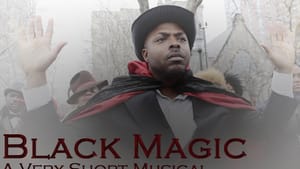Stay in the Loop
BSR publishes on a weekly schedule, with an email newsletter every Wednesday and Thursday morning. There’s no paywall, and subscribing is always free.
Poetry in Motion
Scribe Video Center's "Making Haiku into Short Films"

With its move from one West Philly space to another still as fresh as new paint, Scribe Video Center hasn’t missed a beat when it comes to producing poignant, purposeful, often experimental films with a local edge. As part of its cherished Storyville Scribe Café Series, Philadelphia poet Sonia Sanchez and film director Nadine Patterson led a workshop titled “Making Haiku into Short Films” that drew not only a handful of the area’s finest shorts crafters, but Jos Duncan, a self-tagged Philly griot from Temple University (she founded the decade-old nonprofit GriotWorks, which uses storytelling as a tool for social change).
Short films, big ideas
Duncan tackles tiny tales that blur lines between cultural tradition and future-forward soothsaying, with a hint of magical realism. Starting with her 2016 works such as Oracles (15 min), and Black Magic: Black Lives Matter Musical (4 min), we see films that slide from undulating movement-centric close-ups and warmly emotional texts filled with Afro-femme-conscious slam poetry meter (“brown bodies,” “women carry the burden”) to a bluesy, soulful musical apparently filmed near St. Mary’s Walk in University City. There, a sartorially splendid crew of slow-dancing African-American women and men are happily dazzled by the casual legerdemain of a fedora-wearing crowd-rouser (the Magic Man, played by Khalil Munir) and the belted-out blues of the Lady in Red (Tasha Montfort). The party is seemingly shut down by the sound of police sirens and unseen disciplinarians. The Lady’s cheerful wail merges with the siren’s blare into something that’s more warning than holy communal croon.
In Duncan’s Hello, Fall, the simple act of a woman fighting seasonal affective disorder by strolling into autumn’s sunlight is one of gentle, jovial civil obedience. Her Revolutionary Love Stories episodes are more direct, straightforward interview docs whose poetry comes from the good in those who are “amplifying acts of love as a revolutionary form of social change.” These include a mother’s adoration and a minister’s passion-turned-activism.
The student Haiku Films were far less a part of the filmic program and more personally dreamlike. Elixir, from poet/filmmaker InnaRae Guy depicts a spread-winged and shrouded specter flailing in time to prose-y notions of alchemical gold. Another Haiku Film, Genesis, and its creator Nafessa Collins, is more frank in its depiction of a woman at odds with the commonplace, with flight and new beginnings her guideposts to freedom. “The caterpillar and the butterfly are the same, always the same,” she says, as a sort of mantra for forward motion.
Additional filmmakers, such as Lucia Press founder MaryAnn L. Miller (commenting on white privilege as represented by free-flowing water), black queer writer Davelle Barnes, and course instructor Sonia Sanchez – a master of the blues haiku – made the program’s finished projects worth seeking out for those invested in the intersection of experimental word and deed.
What, When, Where
Making Haiku into Short Films. January 27, 2017, at the Scribe Video Center, 4035 Walnut Street, Philadelphia. (215) 422-2201 or scribe.org.
Sign up for our newsletter
All of the week's new articles, all in one place. Sign up for the free weekly BSR newsletters, and don't miss a conversation.

 A.D. Amorosi
A.D. Amorosi